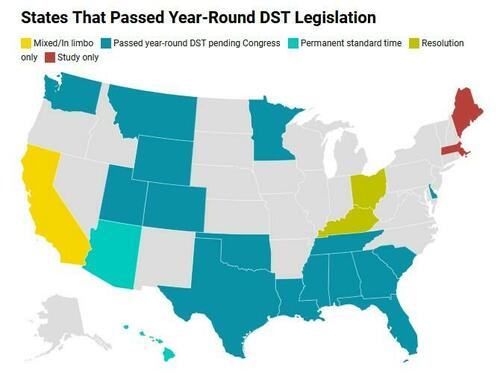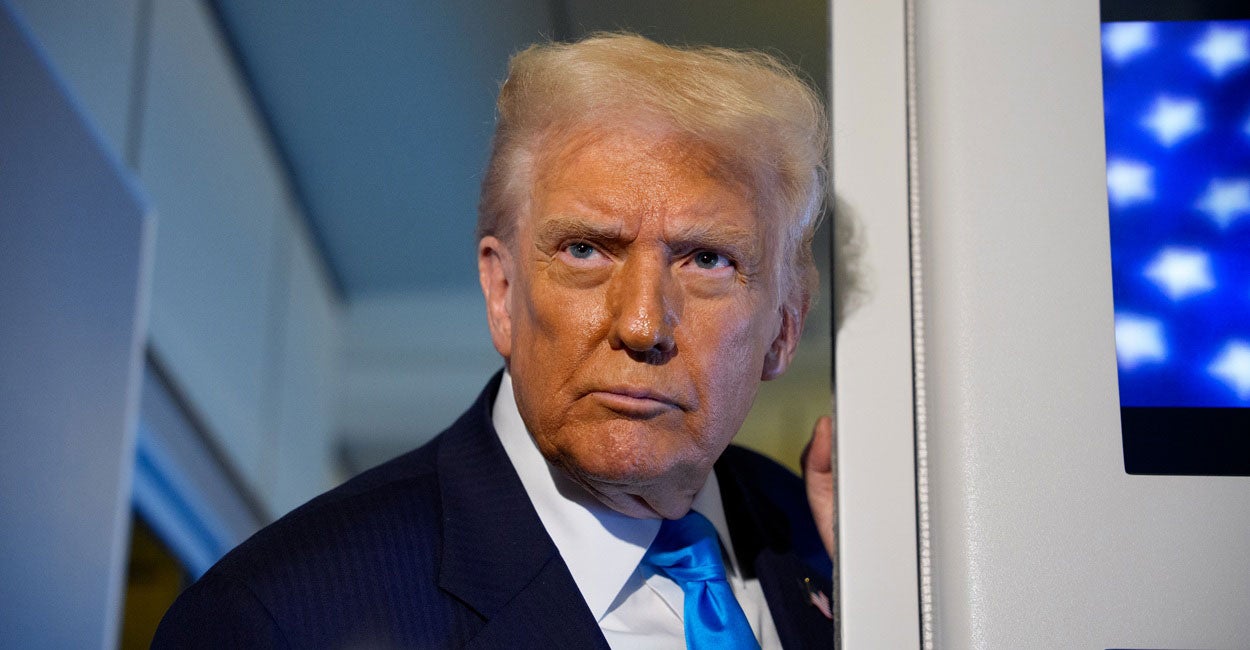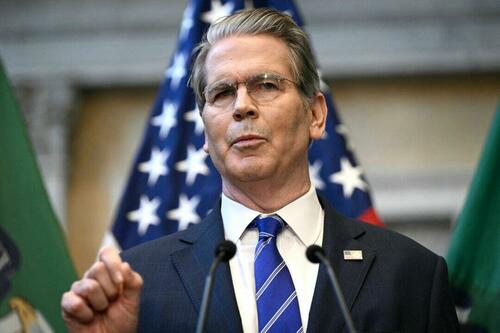Ben & Jerry’s Co-Founder Accuses Unilever Of Blocking Palestinian-Themed Ice Cream

Authored by Naveen Athrappully via The Epoch Times,
Ben & Jerry’s was blocked by its parent company, Unilever, from creating a Palestinian-themed ice cream, the company’s co-founder, Ben Cohen, said in an Oct. 28 video post on Instagram.
“A while back, Ben and Jerry’s tried to make a flavor to call for peace in Palestine, to stand for justice and dignity for everyone, like Ben and Jerry’s always has. But they weren’t allowed to. They were stopped by Unilever/Magnum, the company that owns Ben and Jerry’s. Just like when Ben and Jerry’s tried to stop selling ice cream in the occupied territories, they were blocked again by their parent company,” Cohen said in the video.
“So, I’m doing what they couldn’t. I’m making a watermelon-flavored ice cream that calls for permanent peace in Palestine and calls for repairing all the damage that was done there.”
Watermelon is symbolically linked to the Palestinians since the fruit comes in the same colors—red, black, and green—as seen on the Palestinian flag. They are also commonly grown in the region.
Cohen called on people to come up with the ingredients for the ice cream and a name for the product.
Ben & Jerry’s operates as a wholly owned subsidiary of The Magnum Ice Cream Company, the largest ice cream company in the world. Magnum is a Unilever brand that operates as a standalone company, with the demerger process between the two currently underway.
In an emailed statement to The Epoch Times, a spokesperson for Magnum said that the proposal for a flavor in support of Palestine was made by members of Ben & Jerry’s board of directors this summer.
“The independent members of Ben & Jerry’s Board are not, and have never been, responsible for the Ben & Jerry’s commercial strategy and execution. Recommendations are considered by Ben & Jerry’s leadership, and Ben & Jerry’s management has determined it is not the right time to invest in developing this product,” said the spokesperson.
Ben & Jerry’s has a history of supporting various causes, including LGBT activism, Black Lives Matter, and immigration. The company’s activism has been a point of conflict with Unilever.
In 2021, Ben & Jerry’s decided to stop selling ice cream in Israeli settlements located in East Jerusalem and the West Bank regions. In 2022, Unilever resolved the matter by selling the ice cream brand’s Israeli business rights to a local company.
In November 2024, Ben & Jerry’s filed a lawsuit against Unilever, accusing the parent company of suppressing free speech. In an amended complaint filed in March, the ice cream brand said Unilever removed its CEO, David Stever, as retaliation for the company’s activism.
Last month, Jerry Greenfield, the other co-founder of Ben & Jerry’s, resigned from his role as the company’s brand ambassador, accusing Unilever of silencing their activism.
In a statement to The Epoch Times following the resignation, a spokesperson for The Magnum Ice Cream Company dismissed Greenfield’s allegations.
“We disagree with his perspective and have sought to engage both co-founders in a constructive conversation on how to strengthen Ben & Jerry’s powerful values-based position in the world,” the spokesperson said.
‘Divisive Political Activism’
Ben & Jerry’s has faced criticism from Jewish groups for its characterization of the Israel-Gaza conflict.
In a May 30 statement, the Anti-Defamation League (ADL)—a group that combats anti-Semitism—and JLens, a Registered Investment Advisor (RIA) and Jewish values-based investor network, condemned a statement made by the independent board of Ben & Jerry’s on Israel’s actions in Gaza.
The board had accused Israel of committing genocide in Gaza.
ADL said the statement was “factually inaccurate, inflammatory, and harmful” while distorting Israel’s fight against terror in Gaza.
“We strongly believe in freedom of expression—but Ben and Jerry’s inflammatory and irresponsible accusations about Israel, including genocide, while failing to mention the plight of the hostages or the threats posed by Hamas does nothing to get this conflict resolved,” said Ari Hoffnung, managing director of JLens.
“The Ben & Jerry’s board should not use their brand as a platform for divisive political activism that risks inflicting irreparable harm on its reputation—and its parent company’s shareholders.”
Ben & Jerry’s has faced backlash from authorities due to the nature of its activism. States such as New Jersey, Arizona, Florida, New York, and North Carolina have divested investments in Unilever following Ben & Jerry’s boycott of Israel.
For instance, in 2023, North Carolina state Treasurer Dale R. Folwell ordered North Carolina Retirement Systems to divest $40 million in Unilever assets.
“This is particularly important in this case as we have witnessed the atrocities perpetrated against the Israeli people. There is no place for antisemitism in this state or this country,” he said at the time.
Moreover, Ben & Jerry’s co-founders have been arrested in the past during protests. In 2016, both Greenfield and Cohen were taken into custody while protesting on the steps of the U.S. Capitol Building.
In 2023, Cohen was arrested amid a demonstration in support of WikiLeaks founder Julian Assange.
Meanwhile, the demerger between Magnum and Unilever, initially expected to be completed by mid-November, has been delayed, Unilever said in a statement released on Oct. 21.
The delay is due to “the ongoing US federal government shutdown,” the company said.
“The preparatory work for the Demerger is on track and progressing well, and Unilever remains committed to and confident of implementing the Demerger in 2025. Further updates on the revised timetable will be provided as soon as practicable.”
Loading recommendations…
Recent Top Stories
Sorry, we couldn't find any posts. Please try a different search.










